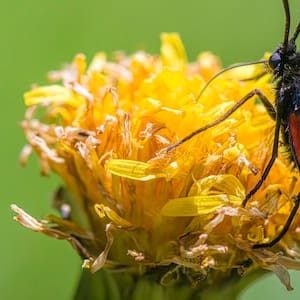catch flies: Idiom Meaning and Origin
What does ‘catch flies’ mean?
The idiom "catch flies" means to do something unproductive or idle, often in a way that suggests a lack of focus or concentration on important tasks.

Idiom Explorer
An idiom meaning a foolish or pointless activity.
The idiom "let fly" means to release or throw something forcefully or with great speed. It can also refer to speaking or expressing oneself freely and without restraint.
The idiom "go nowhere fast" means to make no progress or achieve no results despite putting in a lot of effort or time.
The idiom "go nowhere" means to make no progress or to have no effect. It can be used to describe a situation, a plan, or a person's actions that are unproductive or leading to no meaningful outcome.
The idiom "gone fishing" is used to indicate that someone is taking a break or not available, often to imply that they are avoiding or neglecting responsibilities.
The idiom "go fly a kite" is an informal way of telling someone to go away or to leave you alone, often used when you are annoyed or frustrated with them.
The idiom "for the birds" means something is worthless, unimportant, or not serious.
The idiom "fly under the radar" means to go unnoticed or stay hidden from attention or detection, often to avoid scrutiny or to do something secretly or quietly.
The idiom "fly out of the traps" means to start or move quickly, often with enthusiasm or energy. It is typically used to describe a person or thing that begins a race or competition swiftly.
Unearthing the Enigma
The idiom "catch flies" means to sit or stand idle or do nothing productive. It is not commonly used in everyday conversation and may be more prevalent in certain regions or among specific groups of people. The exact origin of this idiom is unclear, but it likely stems from observations of flies and their behavior.
One interpretation of the idiom suggests that it may have originated from the notion of a person catching flies while sitting or standing idle. This could also indicate that someone is so bored or unoccupied that they resort to catching flies as a means of passing time.
Another possible explanation is that the idiom "catch flies" arose from the observation of flies themselves. Flies are known for their tendency to hover in one place or jump from surface to surface without purpose. This behavior may have been likened to someone who is idle or doing nothing productive, leading to the association of catching flies with idleness.
The idiom "catch flies" is related to the idiom "catch dust," which means to remain unused or neglected for a long time. Just like catching flies, catching dust conveys a sense of inactivity and doing nothing productive. Both idioms highlight the concept of sitting or standing idle.
Similarly, the idiom "catch flies" is related to the phrase "hurt a fly," which means to harm or disturb someone or something that is innocent or defenseless. While "catch flies" refers to idleness, "hurt a fly" suggests a willingness or ability to harm even the most harmless of beings. Both idioms showcase different aspects of human behavior.
"catch-as-catch-can" is another idiomatic phrase related to "catch flies." It means making do with whatever opportunity or resources are available, often in a haphazard or improvised manner. This idiom emphasizes the idea of being adaptable and flexible in one's approach to a task or situation, much like catching flies requires quick reflexes and improvisation.
Finally, "fly low" is an idiom related to "catch flies." It means to keep a low profile or avoid drawing attention to oneself. Just as catching flies requires careful movements and stealth, "fly low" encourages discretion and caution in one's actions.
The idiom "catch flies" offers a unique perspective on the concept of inactivity and the association of idle behavior with the actions of flies. While it may not be as widely recognized or understood as more common idioms, it provides an interesting insight into the way language evolves and reflects human experiences and observations. Whether it is catching flies, catching dust, hurting a fly, adopting a catch-as-catch-can approach, or staying low like a fly, these idioms showcase different aspects of human behavior and offer colorful expressions to convey certain ideas.+
Example usage
Examples of how the idiom "catch flies" can be used in a sentence:
- She sat on the porch for hours, with her mouth hanging open, catching flies.
- During the boring lecture, the students began to lose focus and catch flies.
- He was so exhausted from work that he found himself catching flies while watching TV.
More "insects" idioms



